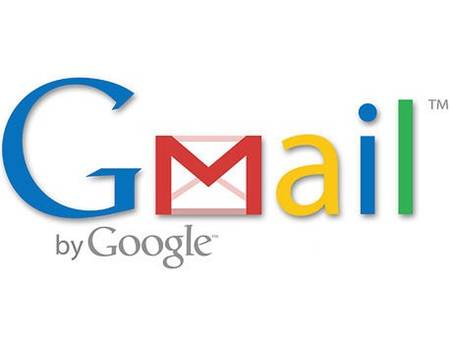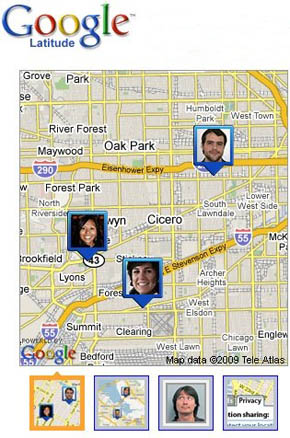 It takes a special kind of internet monolith, one totally aware of its own influence, to adopt the official motto “Don’t be evil.” In 11 short years, Google has gone from a little venture with a quirky name, operating out of a Menlo Park garage, to the resident master of the medium. Here are some of Google activities you should be aware of.
It takes a special kind of internet monolith, one totally aware of its own influence, to adopt the official motto “Don’t be evil.” In 11 short years, Google has gone from a little venture with a quirky name, operating out of a Menlo Park garage, to the resident master of the medium. Here are some of Google activities you should be aware of.
No. 10 Google is buying black fiber

Though the mysterious name makes it sound like some kind of serpentine spy network, “dark fibre” is just unused fibre-optic cable that’s been lying dormant since tech boom companies failed to make any use of it. However, before you say “Oh, well that’s OK,” consider that Google could be planning on creating its own IP network or maybe offering nationwide free Wi-Fi as it does in its hometown of Mountain View. On one hand, hooray, free Wi-Fi! On the other hand, what kind of catastrophic effects would it have on the economy if Google single-handedly leveled the telecom industry?
No.9 – Google destroys libraries

Geoff Nunberg labeled Google Books “The Last Library,” a pretty dire term for Google’s massive project to scan and index the contents of millions of books. The company had to pay a $125 million (USA) settlement in 2008, after a lawsuit accused it of infringing on authors’ and publishers’ copyrights. The Department of Justice is investigating exactly how legal the settlement was, and whether or not it violates the Sherman Antitrust Act, given that it grants Google (and nobody else) an eternal license to sell books whose authors can’t be located.
No.8 – Google is in cahoots with China

When you cycle through all the stuff you associate with “not being evil,” how long does it take before you get to the repressive government of communist China? Hopefully a while, given that this is a country that routinely imprisons people for egregious crimes like handing out Bibles.
Evidently, more interested in their search revenue than human rights, Google agreed to censor the results on its Chinese search engine in accordance with the government’s wishes. Reporters Without Borders called the decision “a real shame,” which is something of an understatement given that Google’s stated mission is to make information “universally accessible.”
No.7 – Google is in cahoots with Scientology

There may be no religion as reviled — or as batsh*t insane — as Scientology. The secretive, litigious Church of Scientology (CoS) gets a spot next to China on the list of sides Google has chosen in disputes (not, so far, a very attractive list). Scientology managed to get anti-CoS web sites removed from Google search results back in 2002, and six years later — once Google’s AdSense had become the primary internet ad application — Google closed the AdSense accounts of two anti-Scientology sites, on the basis that the sites posed a “significant risk to our AdWords advertisers.”
No.6 – Google spies on you

Google now owns Keyhole Inc., the CIA-funded company whose Earth Viewer application became what’s now Google Maps/Earth. Within Google Maps is the “street view” feature, which got Google sued in 2008 by a Pittsburgh couple with the unfortunate names Aaron and Christine Boring. (They lived on a private street, and “street view” was able to display their house and swimming pool.) The troubling part is that their home was supposedly photographed when a “Google vehicle” rumbled down their private road, apparently wandering around with the sole purpose of photographing the area.
No.5 – Google reads your e-mail

Though there’s no high-tech control centre full of Google operatives who personally comb through all your stuff, Gmail itself does know, in a sense, what your e-mails are about. That’s how the top of a Gmail inbox displays a one-line advertisement that’s always suspiciously relevant to your life; the ad is based on the content of your e-mails. Google may not be literally hovering over your shoulder, but it is making advertising revenue by tailoring these spots to whatever it is you’re communicating about.
No.4 – Google tracks you

In July, Google launched Google Latitude, a service that can pinpoint a user’s exact location in real time through his computer or phone (also part of Google Maps). Watchdog organisation Privacy International warned that Latitude could be used for shady stalker-like purposes (such as someone enabling Latitude on your phone without you realising it, thereby being able to track you pretty much everywhere). Latitude might not be designed with malicious intentions, but it’s not a stretch to imagine repurposing it that way.
No.3 – Google strangles its enemies

Google accounts for 76% of internet search advertising. The Department of Justice has repeatedly threatened the company with antitrust actions (one of which involved Google Books, another dealt with the board of directors overlap between Google and Apple). Whether it’s Google’s overwhelming search dominance, allegations of mobile-search collusion (the iPhone generates 50 times more Google searches than other mobile devices), or Google’s aggressive acquisitions (buying Doubleclick for mad cash before Microsoft could), Google always has the means to stay far ahead of its competitors.
No.2 – Google hoards information about you

Almost everything you do with any of Google’s products is recorded in some way — your e-mail, the terms you search for, and (if you use Google Toolbar) what sites you visit. The toolbar also reports this data back to Google without telling you, and it updates to new versions pretty much whenever it feels like it. Google’s revenue comes from knowing exactly what’s going to make you click on an ad, and the best way to do that is to know as much about you as possible. If you’re wondering what happens to all that information, well, Google acknowledges that it’s never intentionally deleted one shred of this stuff.
No.1 – Google is trying to become Skynet

Google’s upcoming Chrome OS is something of a mystery (“Who knows what this thing is?” said Microsoft CEO Steve Ballmer), but it’s set to debut against the new Windows, and its purpose will basically be to give Google the best possible access to your information. It’ll be a confluence of all this vaguely eerie stuff, likely aware of your browsing habits and personal activity, because this is where Google makes its money, and you didn’t think they were developing this otherwise-free thing just to be nice, did you? When this thing starts to think, then we have a real Skynet on our hands.